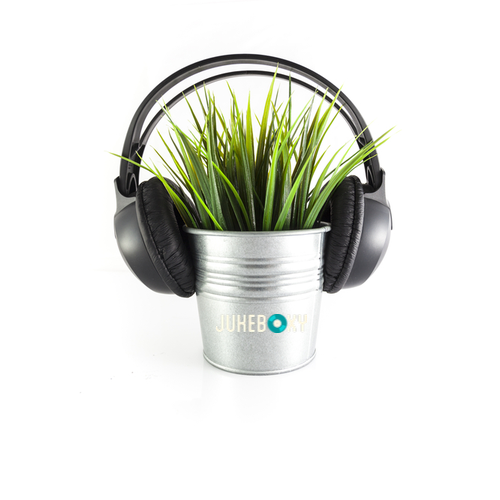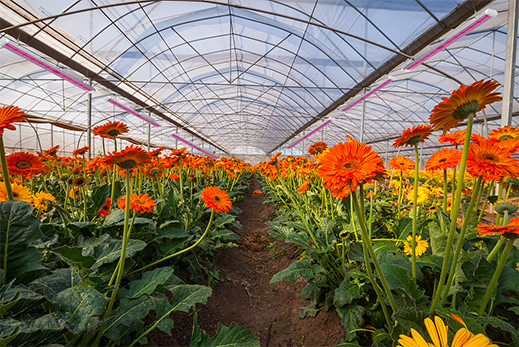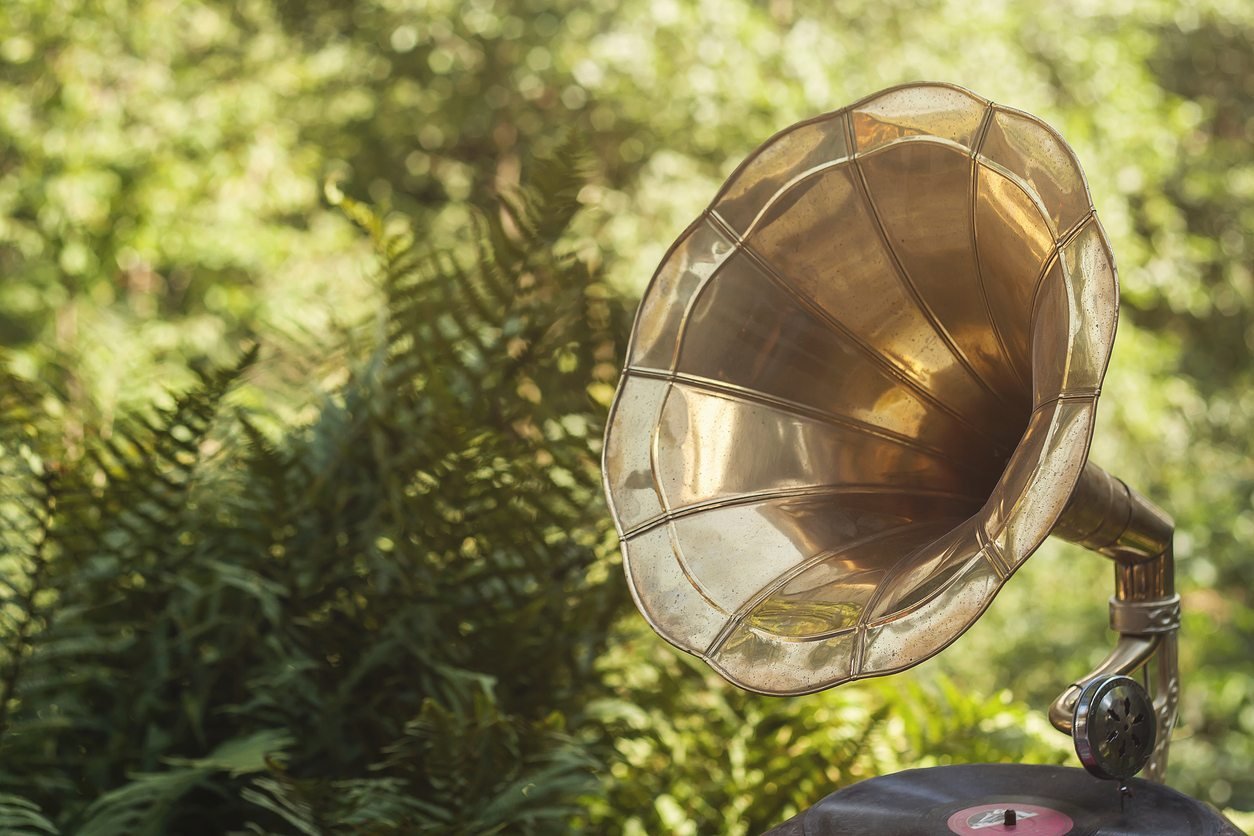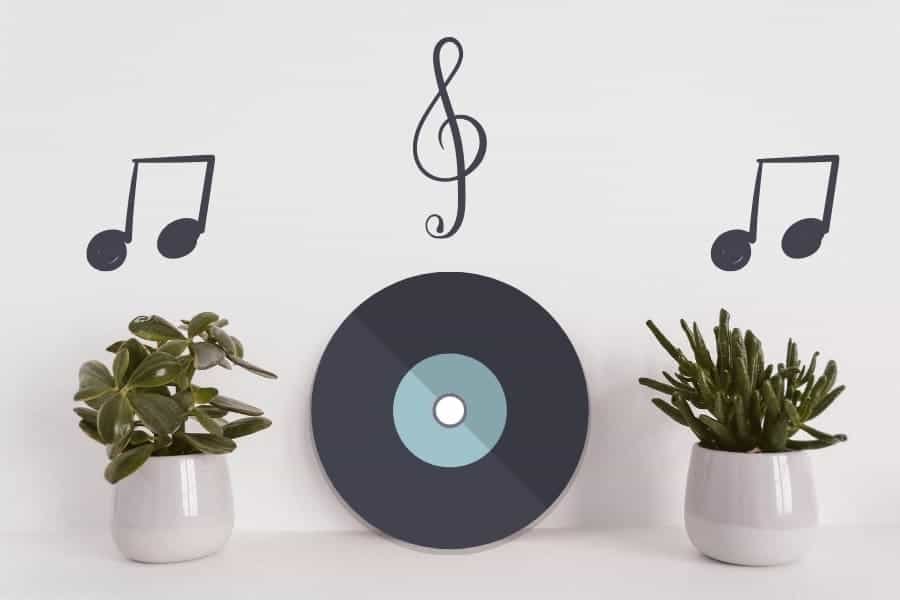Hello my friends! many of us have heard that playing music for plants helps them grow faster
so, can music accelerate plant growth, or is it just another urban legend? do plants really hear sounds? do they really like music?
Much research has been done in this area that shows the real impact of music on plants growth
however, many people are still skeptical about the effect of music on plants growth.

Source : https://www.jukeboxy.com/blog/music-for-business-2
Can music accelerate plant growth?
Believe it or not, countless studies have shown that playing music really makes plants grow faster and healthier.
In 1962, an Indian botanist conducted several experiments on music and plants growth. he found that certain plants grow 20% taller than other specimens when exposed to music, with significantly higher biomass growth. when playing music through loudspeakers around the greenhouse, he found similar results for agricultural products such as peanuts, rice and tobacco. a Colorado greenhouse owner experimented with several different plants and genres of music. he explained that the plants died quickly after hearing rock music and died within a few weeks. while the plants when exposed to classical music, blooms.
A researcher in Illinois doubted that plants respond positively to music, so he did some very controlled greenhouse experiments. Surprisingly, he found that soybeans and corn were exposed to thicker, greener music with significantly greater yields.

What is the effect of music on plant growth?
When we look at the effect of music on plants growth, it does not seem to be much about "sounds" in music. rather, it is more related to the vibrations created by sound waves. in a simple word, vibrations cause movement in plant cells, which in turn stimulates more plants.
If plants do not respond to rock music, it is not because they like classical music better. however, the vibrations created by loud rock music create more pressure that is not beneficial to plant growth.
Music and Plants Growth : Another Perspective
Researchers at the University of California do not jump to conclusions about the effect of music on plant growth. they say there is no conclusive scientific evidence that playing music for plants helps them grow, and more scientific experiments are needed to closely control factors such as light, water and soil composition.
Do plants have emotions? can they hear the voices? do they like music? the idea that plants are emotional or in pain is ridiculous. over the years, several studies have shown that plants may respond to sound alone. however, this issue is still hotly debated in scientific circles.

Source : https://www.gardeningknowhow.com/garden-how-to/info/how-music-affects-plant-growth.htm
The scientific reason for the effect of music on plants growth: The effect of shell resonance
In addition to resonance, which causes the plant's airways to open under the influence of certain music, there is another technique that can explain the effect of music on our plants. This method is known as shell resonance and stimulates or inhibits protein synthesis in plants. different tones play a role here. the theory is that proteins, which are made up of amino acids, vibrate at the same time.
Each amino acid must have its own frequency. therefore, each protein has its own frequency range. therefore, in theory, the correct sequence of sounds should cause the protein to resonate.
The effect of resonance on the human body is also being investigated. Percutaneous electrical nerve stimulation, or TENS, is a method that uses a specific frequency to stimulate the production of certain substances in the body. For example, a frequency of 10 Hz is stimulated to produce the neurotransmitter serotonin (the same as the frequency of α waves). And guess what's interesting? Serotonin is an amino acid.
The reason that different rusts can have such effects on plants is because hormones such as auxin, which is a substance that promotes cell proliferation and fruit formation, are made up of only two amino acids. allowing the plant to vibrate long enough at the frequencies of these two amino acids should increase the production of desirable plant hormones, resulting in more branches.
Music can also affect seed germination. A publication in the Journal of Alternative and Complementary Medicine describes an experiment in which music resulted in a higher germination rate (P <0.002) and faster germination (P <0.000002). it seems appear to have any effect on germination. so here it seems that the multiple frequencies are significant, and since germination is all about hormones, it is very likely that shell resonance plays a role here.
Do you still have doubts?
If so, you are not alone! It's true that the positive effects of music on plant growth are still widely debated among scientists. Because the scientific community only accepts and confirms measurable results, there are many skeptics who consider the above studies to be bad science because most of them have been indescribable. this means that when others try to repeat the study as described, their results do not match the results of the original study. if the results of a study are not scientifically relevant or can not be supported by independent validation and reproducible studies, they are no longer relevant. in some cases, after further analysis, the original studies themselves were flawed.
The Telegraph reports that scientists at the National Institute of Agricultural Biotechnology in Suwon, South Korea, are playing classical music on rice fields and have concluded that plant genes can "hear" and perform better. The study was published in the August 2007 issue of the journal Scientist. However, negative comments were received from some people that external factors such as wind may alter the effects of the experiment. Others say very few examples have been considered for conclusions.
As i mentioned, there are many positive and less negative opinions about the effect of music on plant growth. From various experiments to authoritative scientific research, they have studied this issue. of course, this effect can not be completely ignored! but the important point that was mentioned is the lack of proof of feeling in the plant. the effect of music on the plants is more related to the frequency and waves of the music.

Source : https://youhadmeatgardening.com/best-music-for-plants/
Thank's for watching and reading my review!
Actually MythBusters discovered that you grow better tomatoes with heavy metal and classical music which proved to me the reasoning behind the science.
Let alone the results absolutely great post I'm sharing it and I hope you have great rewards with this post
Thank you very much!
This is so interesting... I have to admit that I am skeptical too, but the idea behind this it's very curious. Althoug, I hope they can find the true about this. Thanks for share! :)
Appreiciate it, thank's for reading!